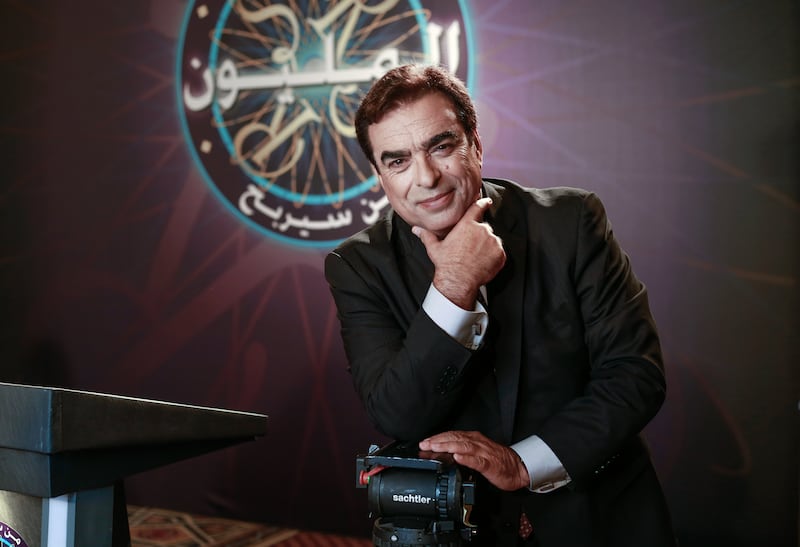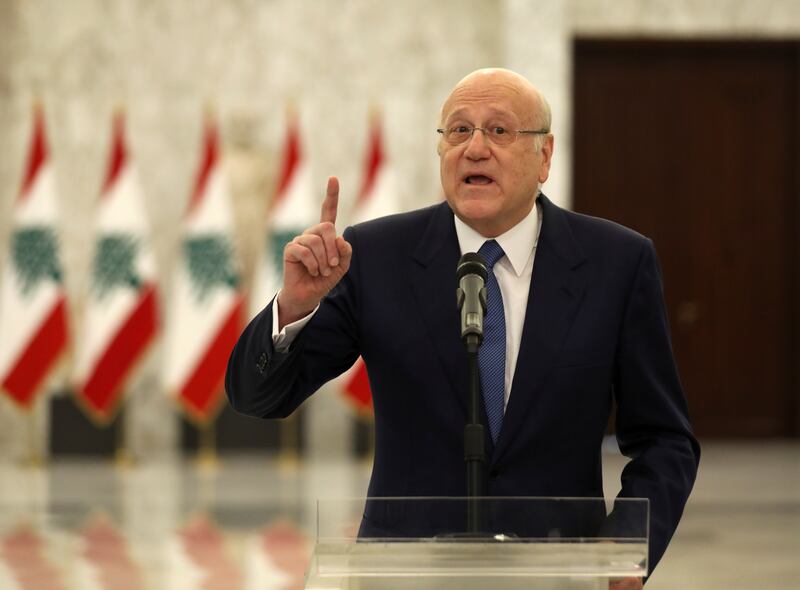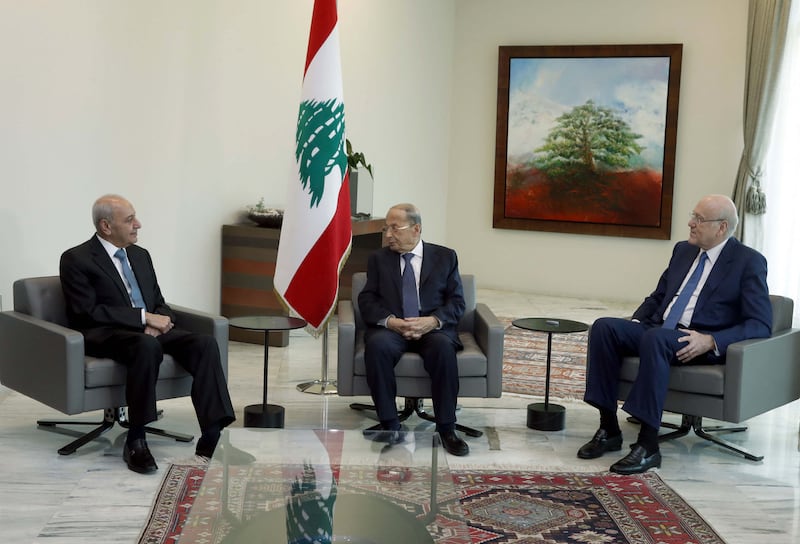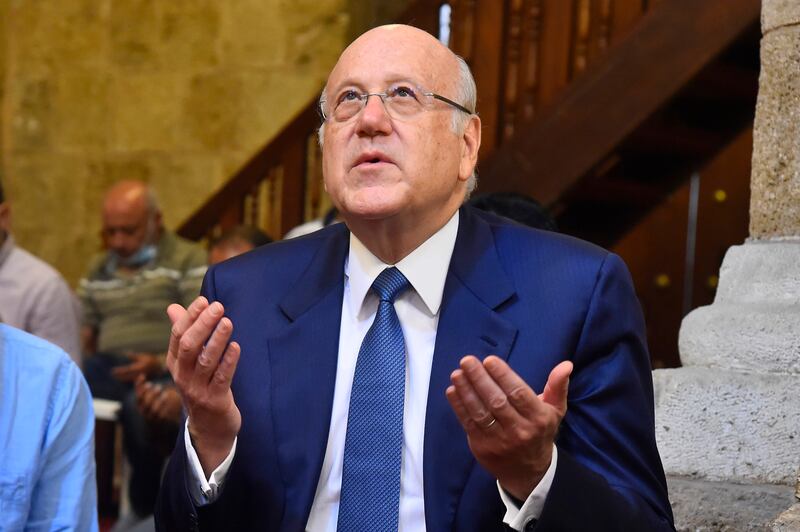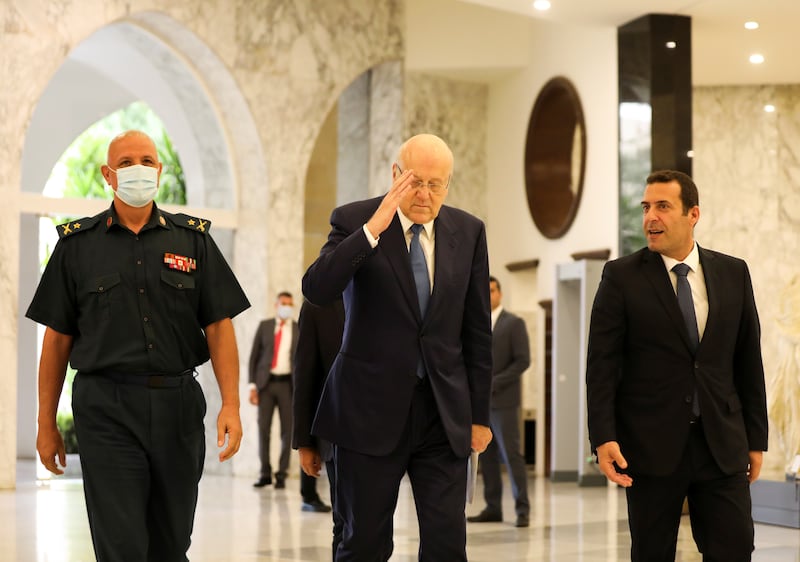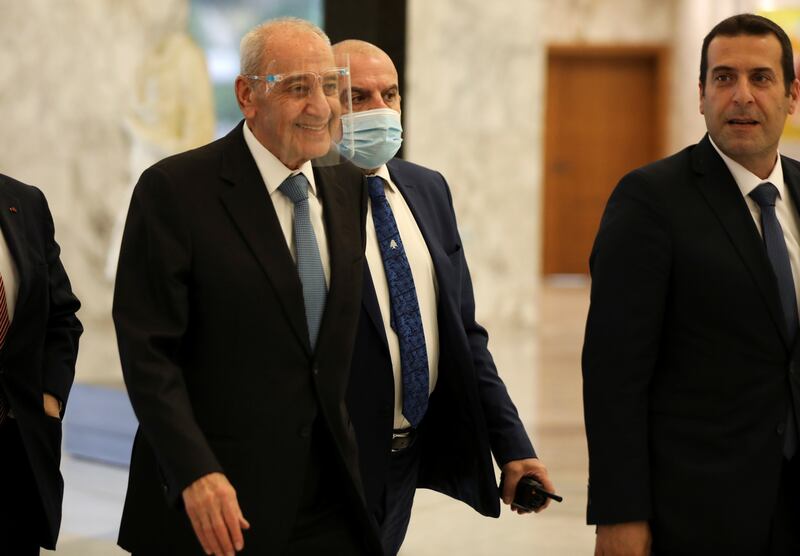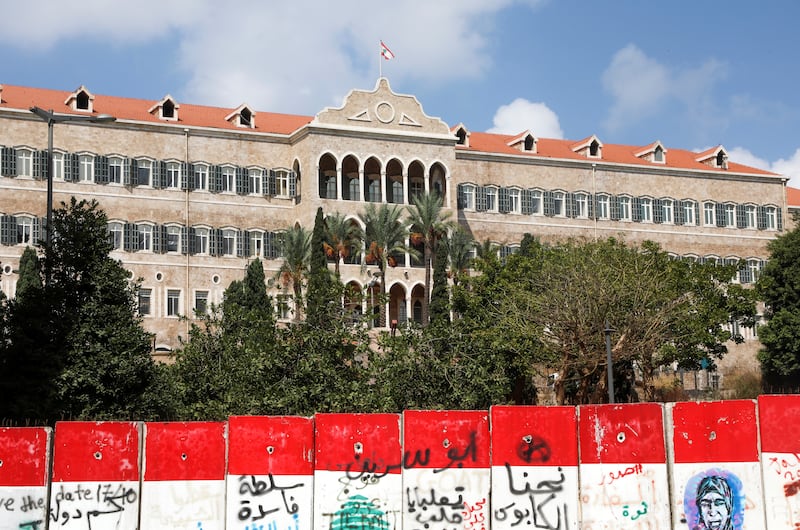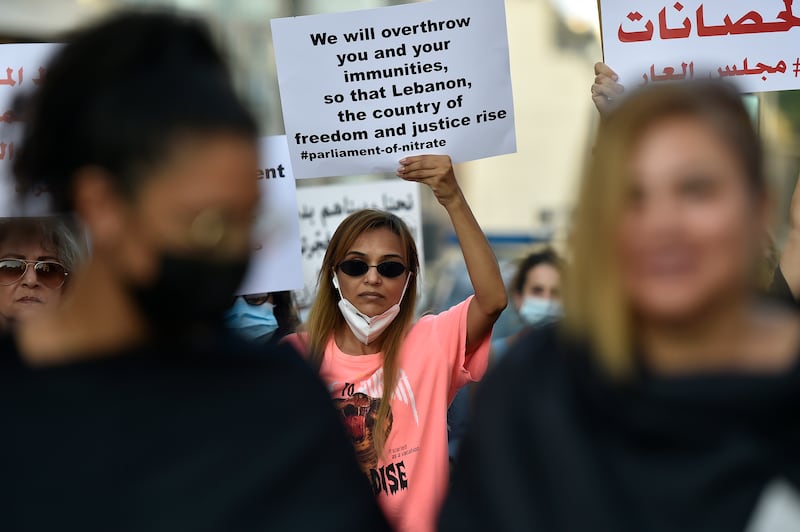When a Hezbollah broadcaster pressed George Kordahi about who he thought was the man of the year 2018, the TV star picked not one but three controversial names.
Hezbollah Secretary General Hassan Nasrallah was without a doubt Lebanon’s man of the year, he said. Syrian President Bashar Al Assad should be the Arab man of the year while Russian President Vladimir Putin is the international personality of 2018.
On Friday, the controversial presenter became Lebanon’s information minister. A staunch supporter of the internationally shunned Hezbollah group and the Syrian regime, he is the most famous personality in a government responsible for restoring Lebanon’s global standing and saving Beirut from collapse.
Mr Al Assad “proved he is a man cut from a different cloth”, he told Al Manar TV in the same interview.
“As an Arab man, as a Lebanese, I tell you this: had this man not resisted, Syria would no longer exist. Lebanon would no longer exist. Jordan and the Gulf neither.”
Media career
Mr Kordahi is one of the Arab world’s most famous TV personalities. A Maronite Christian, Mr Kordahi grew up in the mountains of Keserwan, north of Beirut. He began his career as a journalist in the 1970s at TeleLiban, Lebanon’s public TV station, before moving on to Radio Monte Carlo.
Yet, Mr Kordahi soared to fame in the early 2000s when he hosted the Arab version of the hit show Who Wants to be a Millionaire? – a programme loved by millions of Arab viewers.
The 71-year-old presenter turned to advertisements in his later years. His image is plastered across Lebanon and Dubai to promote an online trading provider, and he launched his own line of men's suits and perfume.
He gained notoriety during Lebanon's post-war reconstruction period in the early 2000s, an era of relative prosperity after 15 years of conflict.
He is now part of prime minister Najib Mikati’s government, which has the daunting task of curbing Lebanon’s economic collapse, resuming talks with international lenders and overseeing elections in eight months.
Lebanese politicians agreed to form a new government after 13 months of dispute over ministerial shares and two years of financial crisis.
Controversy
After the Cabinet announcement, Mr Kordahi's name swiftly became the top trending hashtag on Lebanese Twitter, with memes of his show circulating on social media and WhatsApp.
One joke said Mr Kordahi will now be hosting 'who will steal the million,' in reference to his show and the Lebanese political elite’s history of deeply entrenched corruption.
Mr Kordahi sparked controversy after landing in Beirut from the UAE on Saturday. He urged the media to refrain from hosting analysts and experts with a negative outlook on the country, prompting backlash from journalists.
Lebanon’s alternative press syndicate accused him of trying to censor the media and urged him to respect press freedom.
“The Alternative Press Syndicate warns authorities of the consequences of playing this role,” they said.
“Attempts to transform Lebanon into a security state will be confronted by media professionals first.”
Political opinions
Mr Kordahi is the Christian Marada party’s pick, a group that is close to the Syrian regime and the Iran-backed Hezbollah.
He was a staunch supporter of President Michel Aoun’s Free Patriotic Movement and had previously said he planned to run on its list in the 2013 parliamentary elections, postponed until 2018.
But he kept a distance from Mr Aoun after he became president in 2016.
In an interview with local broadcaster Sawt Beirut International last year, he said Mr Aoun had failed to save the country from collapse.
Mr Kordahi told SBI that “his convictions” cost him his job at Saudi-owned MBC as he became more vocal about his support for Mr Al Assad after the onset of the civil war in 2011.
The Arab league shunned Damascus because of the regime’s violent response to initially peaceful protests demanding change in 2011.
The US also imposed sanctions on the Assad regime for its human rights record last year after a Syrian whistle-blower leaked thousands of photos of killed and tortured prisoners.
“I left MBC for my convictions, because I support the resistance [Hezbollah] and Syria,” he said, adding that his relations with Riyadh have improved recently.
Hezbollah is militarily engaged in Syria beside the Assad regime, and is considered a terrorist organisation by the US, most of Europe and some Arab countries.
Mr Kordahi is one of a handful of Lebanese politicians with ties to both Iran and its allies but also their rivals in the Gulf.
He expressed support for the UAE in numerous posts on his Facebook page.
